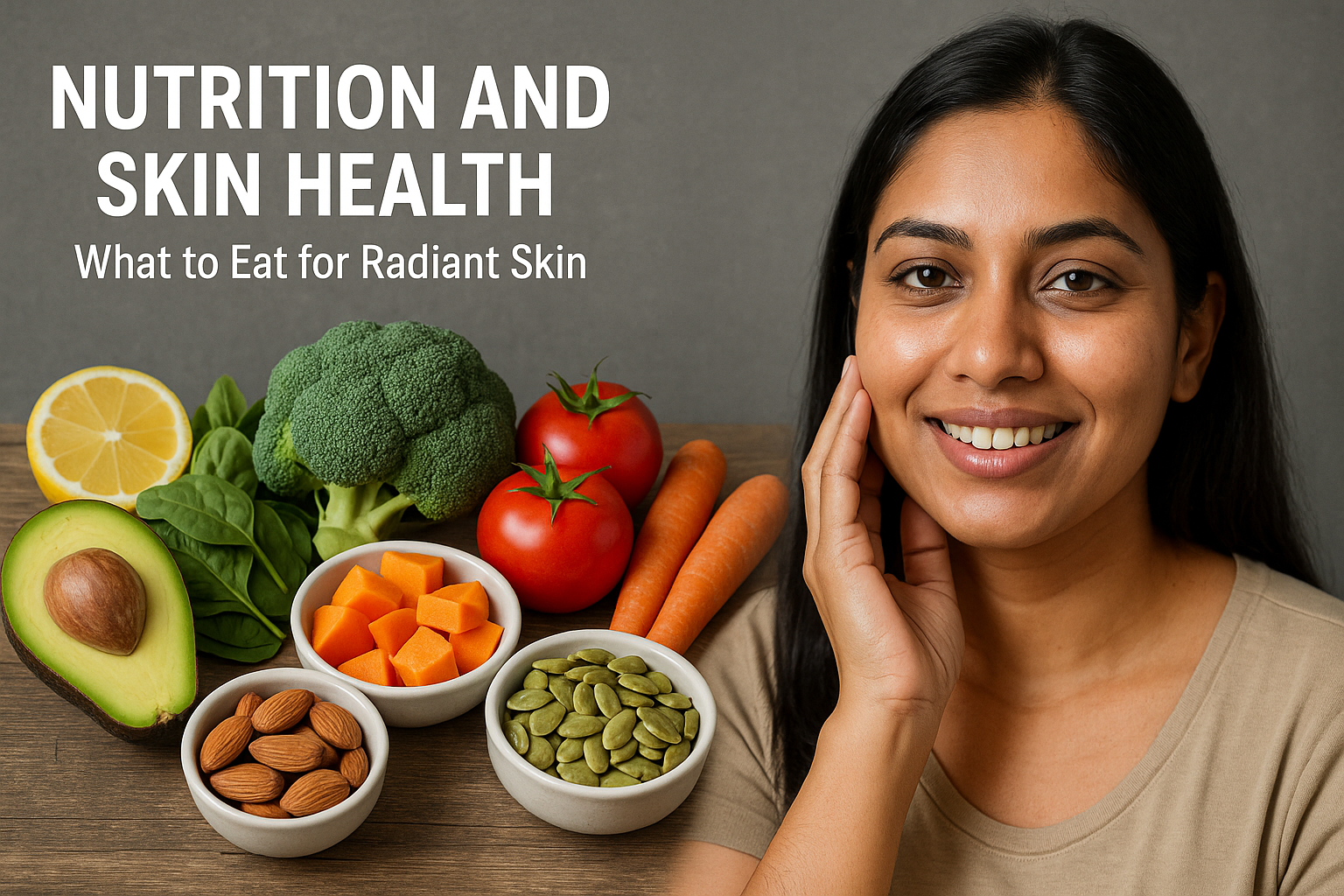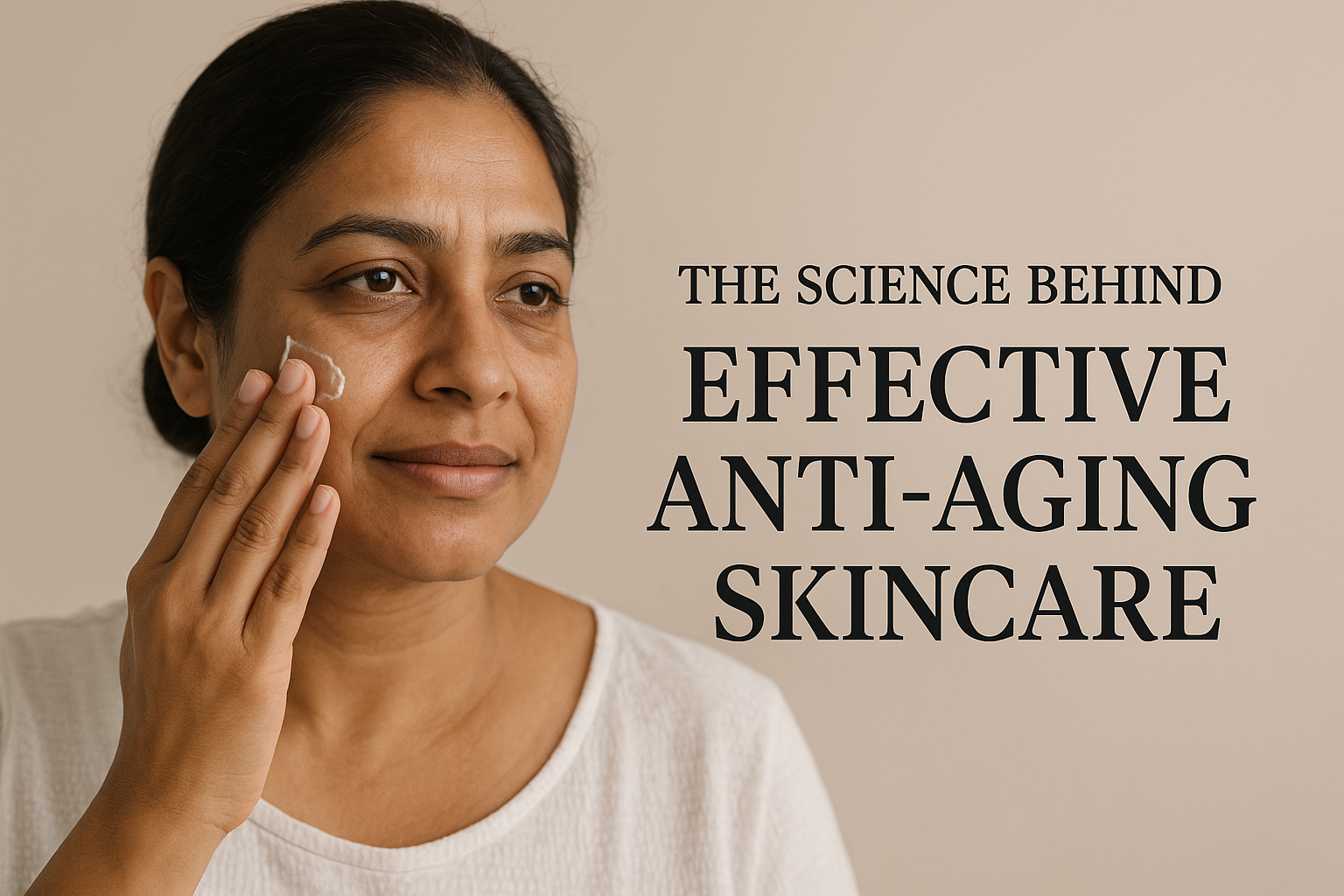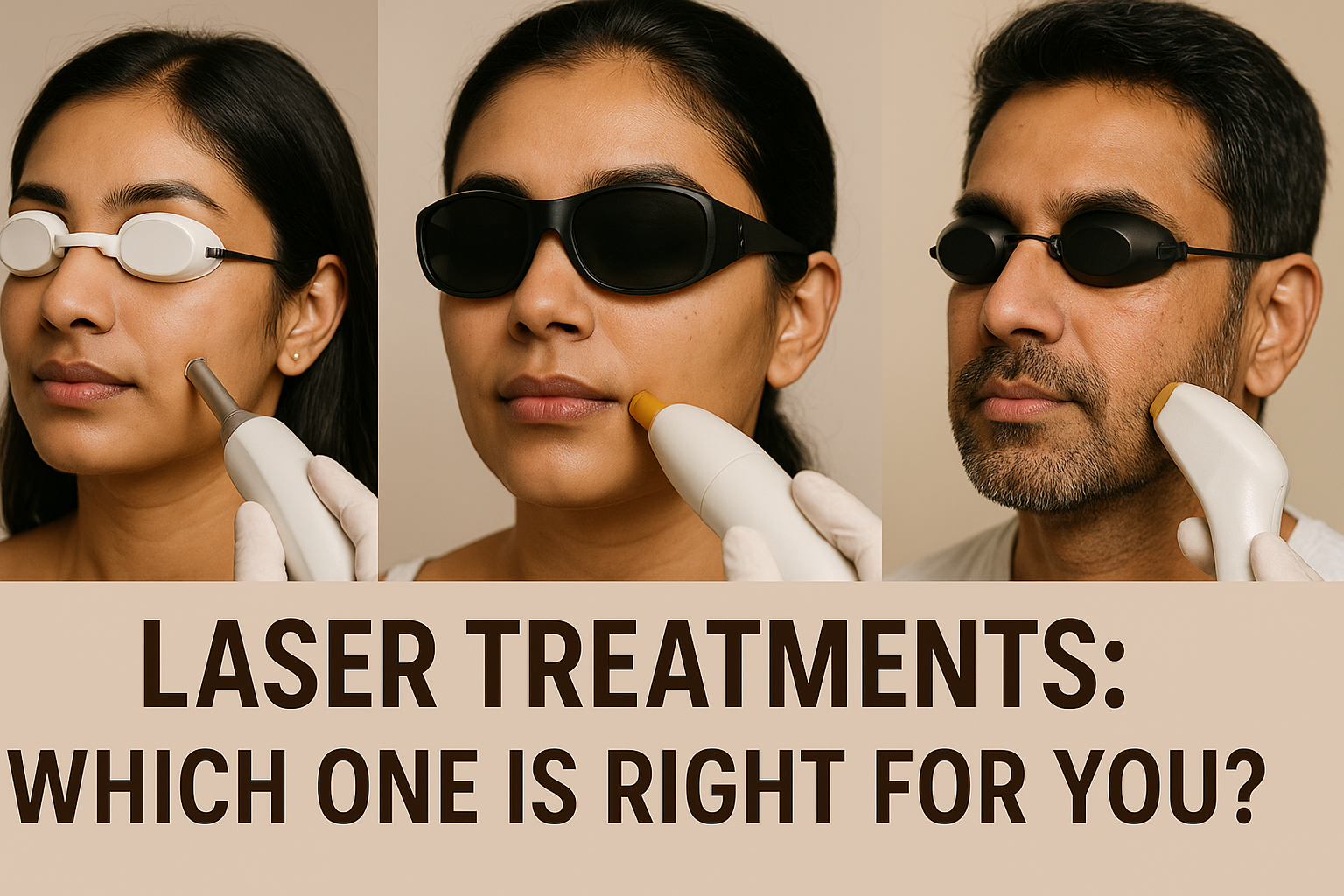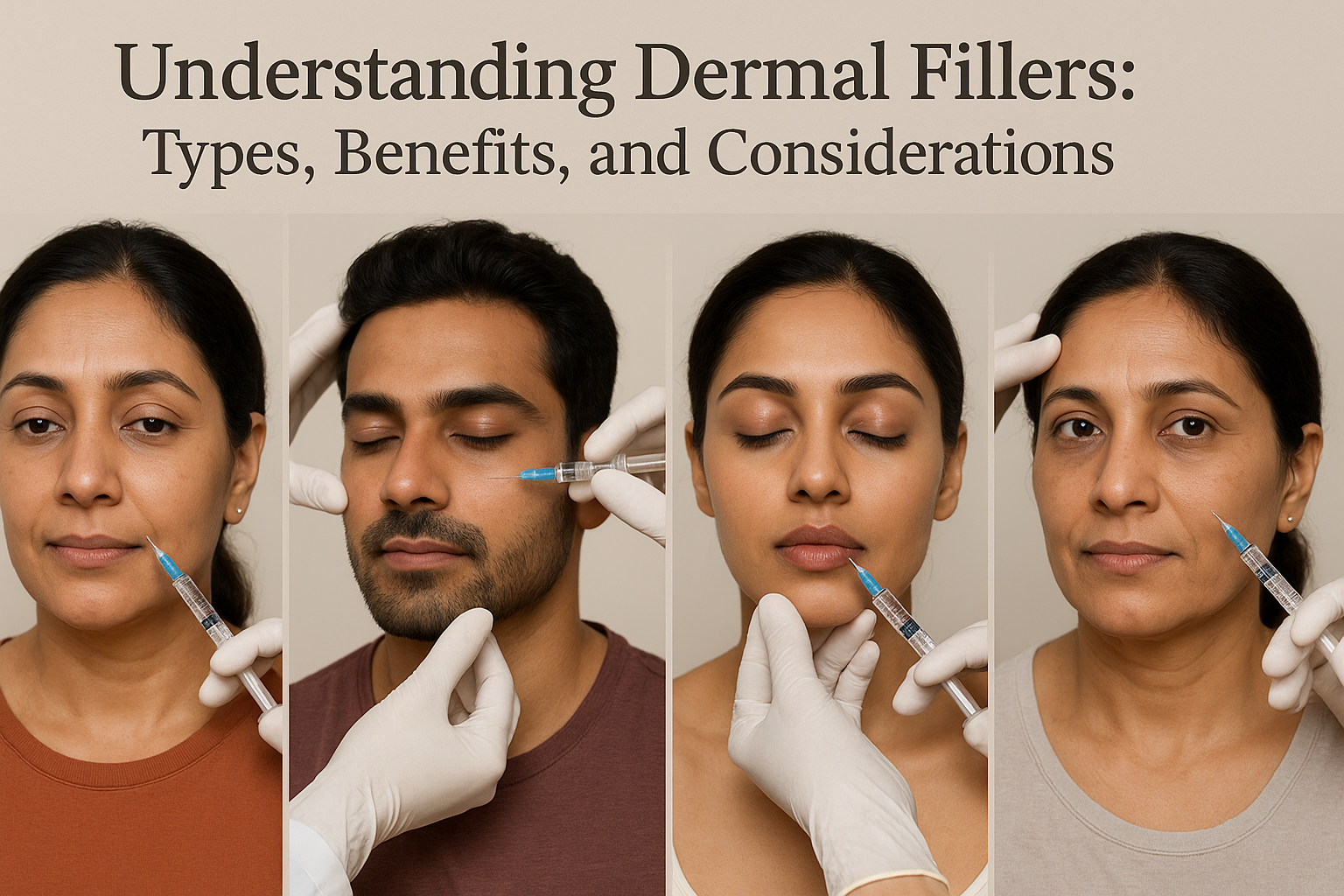As a dermatologist, I've always been fascinated by the profound connection between what we eat and how our skin looks and feels. The old saying "you are what you eat" holds particularly true when it comes to skin health. While topical treatments are essential components of any skincare regimen, nourishing your skin from within through proper nutrition can dramatically enhance your complexion and help address a variety of skin concerns. In this comprehensive guide, I'll explore the intricate relationship between diet and skin health, and provide evidence-based recommendations for achieving radiant skin through nutrition.
The Skin-Diet Connection
Our skin, the body's largest organ, reflects our internal health in many ways. The food we consume provides the building blocks for cell renewal, collagen production, and protective barrier function. When we lack certain nutrients or consume foods that trigger inflammation, these effects can manifest visibly on our skin.
Research has increasingly demonstrated the links between dietary patterns and skin conditions. For instance, studies show connections between high-glycemic diets and acne, while anti-inflammatory diets may help manage conditions like psoriasis and eczema. These findings highlight that skin health is not merely about what you apply topically—it's significantly influenced by your dietary choices.
For optimal skin health, we need to focus on a balanced diet rich in vitamins, minerals, antioxidants, healthy fats, and adequate hydration. Let's explore the key nutrients that play pivotal roles in maintaining healthy, radiant skin.
Key Nutrients for Healthy Skin
Antioxidants
Antioxidants are compounds that help protect your skin from oxidative stress and free radical damage, which contribute to premature aging, inflammation, and various skin conditions. They essentially act as your skin's internal defense system against environmental aggressors.
Key antioxidants and their food sources:
- Vitamin C: Essential for collagen synthesis and a powerful antioxidant. Find it in citrus fruits, strawberries, bell peppers, broccoli, and kiwi.
- Vitamin E: Protects cell membranes and works synergistically with vitamin C. Sources include almonds, sunflower seeds, spinach, and avocado.
- Vitamin A/Beta-carotene: Critical for cell regeneration and repair. Abundant in sweet potatoes, carrots, pumpkin, spinach, and mangoes.
- Polyphenols: Plant compounds with potent antioxidant effects. Found in green tea, dark chocolate, berries, and red wine.
- Selenium: A mineral that helps preserve skin's elasticity. Sources include Brazil nuts, seafood, whole grains, and eggs.
A diet rich in colorful fruits and vegetables ensures you're getting a broad spectrum of these skin-protecting compounds. Aim for at least 5 servings daily, with emphasis on variety—the more colors on your plate, the better for your skin.
Omega-3 Fatty Acids
Omega-3 fatty acids are essential fats that play a crucial role in maintaining the skin's lipid barrier, which helps retain moisture and protect against irritants. They also have powerful anti-inflammatory properties that can help calm skin conditions characterized by inflammation.
Benefits of omega-3s for skin:
- Strengthen the skin's moisture barrier
- Reduce UV-induced inflammation and hyperpigmentation
- Help manage inflammatory skin conditions
- Contribute to the skin's overall resilience
Best sources of omega-3 fatty acids:
- Fatty fish (salmon, mackerel, sardines, herring)
- Walnuts
- Flaxseeds and flaxseed oil
- Chia seeds
- Hemp seeds
- Algal oil (a plant-based alternative)
Aim to consume fatty fish at least twice a week or include plant-based sources daily to provide your skin with these essential fats.
Collagen-Boosting Nutrients
Collagen is the most abundant protein in our body and a major component of skin that provides structure, elasticity, and firmness. As we age, our natural collagen production declines, leading to wrinkles and sagging. While topical collagen doesn't effectively penetrate the skin, consuming nutrients that support collagen synthesis can make a significant difference.
Key collagen-supporting nutrients:
- Vitamin C: A co-factor for enzymes that create collagen. Without adequate vitamin C, collagen production falters.
- Proline: An amino acid found in egg whites, dairy, cabbage, mushrooms, and asparagus.
- Glycine: Another amino acid abundant in protein-rich foods and bone broth.
- Copper: Activates an enzyme essential for collagen maturation. Found in shellfish, nuts, and seeds.
- Zinc: Important for collagen synthesis. Sources include oysters, beef, pumpkin seeds, and lentils.
Including these nutrients regularly in your diet helps maintain collagen production and can improve skin elasticity and firmness over time.
Hydration
Proper hydration is fundamental for skin health. Water maintains skin moisture, delivers nutrients to skin cells, and helps flush toxins from the body. Dehydration can make skin appear dull, exacerbate wrinkles, and slow healing processes.
Hydration tips for healthy skin:
- Aim for at least 8-10, 8-ounce glasses of water daily, more if you're very active or in hot climates
- Incorporate water-rich foods like cucumber, watermelon, strawberries, and lettuce
- Moderate consumption of dehydrating beverages like alcohol and caffeine
- Consider herbal teas and infused water as flavorful alternatives
- Monitor urine color (pale yellow indicates good hydration)
Remember that hydration alone won't transform your skin, but inadequate hydration can certainly compromise it. Water works synergistically with the nutrients mentioned above to optimize skin function.
Skin-Nourishing Nutrients at a Glance
| Nutrient | Benefits for Skin | Top Food Sources |
|---|---|---|
| Vitamin C | Collagen production, antioxidant protection | Citrus fruits, strawberries, kiwi, bell peppers |
| Vitamin E | Protects cell membranes, moisturizes | Almonds, sunflower seeds, avocado |
| Vitamin A | Cell turnover, repair, oil regulation | Sweet potatoes, carrots, spinach, liver |
| Omega-3 Fatty Acids | Anti-inflammatory, strengthens barrier | Salmon, walnuts, flaxseeds, chia seeds |
| Zinc | Wound healing, oil regulation, collagen | Oysters, pumpkin seeds, beef, lentils |
| Selenium | Antioxidant protection, preserves elasticity | Brazil nuts, tuna, whole wheat, eggs |
| Biotin | Supports healthy skin, hair, and nails | Eggs, almonds, sweet potatoes, bananas |
Nutrition for Common Skin Conditions
Beyond general skin health, nutrition can play a significant role in managing specific skin conditions. Here's how dietary modifications may help with common dermatological concerns:
Acne
The relationship between diet and acne has been controversial historically, but recent research provides compelling evidence for nutritional influences on acne development and severity.
Dietary factors that may worsen acne:
- High glycemic index foods: Foods that rapidly raise blood sugar, like white bread, sugary drinks, and processed snacks, can trigger hormonal cascades that increase sebum production and inflammation.
- Dairy products: Especially skim milk, which contains growth hormones and insulin-like growth factor 1 (IGF-1) that may influence acne formation.
- Whey protein: Popular among fitness enthusiasts, whey protein supplements have been linked to acne flares in some individuals.
Dietary approaches that may help:
- Low-glycemic diet rich in whole grains, legumes, and vegetables
- Omega-3 fatty acids for their anti-inflammatory effects
- Zinc-rich foods, as zinc may help reduce acne severity
- Antioxidant-rich foods to combat oxidative stress
- Probiotics to support gut health, which indirectly affects skin inflammation
It's important to note that individual responses to dietary changes vary significantly. Some people with acne are more diet-sensitive than others, and finding your specific triggers may require careful observation and possibly food elimination trials under professional guidance.
Eczema
Atopic dermatitis (eczema) is an inflammatory skin condition heavily influenced by both genetic and environmental factors, including diet. The relationship between eczema and nutrition often involves food sensitivities and anti-inflammatory dietary patterns.
Dietary considerations for eczema:
- Food sensitivities: Common triggers include cow's milk, eggs, peanuts, tree nuts, soy, wheat, fish, and shellfish. Elimination diets supervised by healthcare professionals can help identify individual triggers.
- Anti-inflammatory foods: Fruits, vegetables, fatty fish, and foods rich in quercetin (like apples, berries, and tea) may help reduce inflammation.
- Probiotics: Some studies suggest probiotics may help modulate immune response in eczema, particularly in children.
- Vitamin D: Deficiency has been linked to increased eczema severity; food sources include fatty fish, egg yolks, and fortified foods.
Managing eczema through diet typically requires an individualized approach, as triggers vary widely between patients. Keeping a food and symptom journal can be helpful in identifying patterns.
Psoriasis
Psoriasis is a chronic autoimmune condition characterized by rapid skin cell turnover and inflammation. Dietary interventions focus on reducing systemic inflammation and supporting immune regulation.
Dietary approaches for psoriasis:
- Mediterranean diet: Rich in anti-inflammatory foods like olive oil, fish, fruits, vegetables, and whole grains, this dietary pattern has shown promise for reducing psoriasis severity.
- Omega-3 fatty acids: These anti-inflammatory compounds may help reduce psoriasis symptoms when consumed regularly.
- Vitamin D: Both topical and dietary vitamin D can be beneficial for psoriasis management.
- Gluten-free diet: Some patients with psoriasis, particularly those with celiac disease markers, may benefit from avoiding gluten.
- Weight management: Obesity is a risk factor for psoriasis, and weight loss has been shown to improve symptoms in overweight patients.
While nutrition cannot cure psoriasis, dietary modifications can be valuable complements to medical treatments in managing symptom severity and reducing flare frequency.
Premature Aging
Skin aging is influenced by both intrinsic (genetic, hormonal) and extrinsic (environmental, lifestyle) factors. Nutrition plays a significant role in combating premature aging by providing antioxidant protection, supporting collagen synthesis, and maintaining skin's structural integrity.
Anti-aging nutritional strategies:
- Antioxidant-rich diet: Colorful fruits and vegetables combat oxidative stress, a major contributor to skin aging.
- Adequate protein: Ensures sufficient amino acids for collagen and elastin production.
- Omega-3 fatty acids: Help maintain skin's lipid barrier and reduce inflammation that accelerates aging.
- Polyphenols: Found in green tea, dark chocolate, and berries, these compounds have been shown to protect against UV damage and improve skin elasticity.
- Vitamin C and E: Work synergistically to protect skin from oxidative damage and support collagen synthesis.
- Carotenoids: Lycopene (in tomatoes) and beta-carotene (in orange/yellow vegetables) may help protect against sun damage.
A diet focused on whole, unprocessed foods with a variety of nutrients provides the best foundation for maintaining youthful skin. Combining these dietary practices with sun protection and proper skincare yields the most significant anti-aging benefits.
Foods That May Harm Your Skin
Just as certain foods can enhance skin health, others may contribute to skin problems. While individual responses vary, these are common dietary factors that may negatively impact skin appearance and health:
- Refined sugars and high-glycemic foods: Can trigger inflammation and glycation, a process that damages collagen and elastin.
- Excessive alcohol: Dehydrates the skin, dilates blood vessels (potentially worsening conditions like rosacea), and depletes nutrients needed for skin health.
- Trans fats: Found in some processed foods, these unhealthy fats promote inflammation and may impair skin barrier function.
- Salt excess: Can lead to water retention and puffiness, particularly around the eyes.
- Processed meats: Often contain preservatives and additives that may trigger inflammation in sensitive individuals.
Moderation is key with these foods. Rather than completely eliminating them (which can create unnecessary stress), focus on reducing frequency and portion sizes while emphasizing skin-supportive foods in your overall diet.
Sample Skin-Healthy Meal Plan
Incorporating skin-nourishing foods into your daily routine doesn't have to be complicated. Here's a sample one-day meal plan rich in skin-supportive nutrients:
Breakfast:
Overnight oats made with rolled oats, chia seeds, almond milk, cinnamon, and topped with mixed berries and a tablespoon of walnuts.
Green tea (rich in polyphenols)
Mid-Morning Snack:
Greek yogurt with a drizzle of honey and a handful of antioxidant-rich blueberries
Lunch:
Salmon salad with mixed greens, avocado, cucumber, bell peppers, cherry tomatoes, and a lemon-olive oil dressing
Small piece of dark chocolate (70%+ cacao)
Afternoon Snack:
Sliced apple with a tablespoon of almond butter
Herbal tea or infused water
Dinner:
Grilled chicken breast with herbs
Roasted sweet potatoes with olive oil and rosemary
Steamed broccoli with a squeeze of lemon
Side salad with tomatoes, carrots, and olive oil dressing
Hydration throughout the day:
8-10 glasses of water, herbal teas, or infused water with cucumber, lemon, or berries
This meal plan provides a balance of antioxidants, essential fatty acids, vitamins, minerals, and hydration to support overall skin health. Adjust portions based on your individual energy needs and preferences.
Supplements for Skin Health
While a nutrient-rich diet should be the foundation of skin health, certain supplements may offer additional benefits, particularly for those with specific deficiencies or skin concerns. It's important to note that supplements should complement, not replace, a healthy diet and should be discussed with a healthcare provider before starting.
Supplements with evidence for skin benefits:
- Collagen peptides: Studies suggest oral collagen supplements may improve skin elasticity, hydration, and dermal collagen density. Look for hydrolyzed collagen for better absorption.
- Omega-3 fatty acids: Fish oil or algal oil supplements can provide concentrated doses of these anti-inflammatory compounds.
- Vitamin D: Often deficient in many populations, vitamin D supplementation may benefit those with certain skin conditions, especially when dietary intake and sun exposure are inadequate.
- Probiotics: Certain strains may help modulate immune response and reduce inflammation in conditions like acne, eczema, and rosacea.
- Nicotinamide (Vitamin B3): Has shown promise for acne and reducing non-melanoma skin cancer risk in high-risk individuals.
- Zinc: May help those with acne, particularly if deficient.
When choosing supplements, look for quality products from reputable manufacturers with third-party testing. Be aware that the supplement industry is less regulated than pharmaceuticals, so quality can vary significantly between brands.
Remember that excessive intake of certain nutrients can have adverse effects, including negative impacts on skin. More is not always better when it comes to supplementation.
The Gut-Skin Connection
Emerging research has revealed a fascinating bidirectional relationship between gut health and skin health, often referred to as the "gut-skin axis." This connection helps explain why dietary changes can significantly impact skin conditions.
Key aspects of this relationship:
- Gut microbiome: The trillions of microorganisms in our digestive tract influence immune function, inflammation, and even nutrient absorption—all of which affect skin health.
- Intestinal permeability: Often called "leaky gut," increased intestinal permeability may allow inflammatory compounds to enter the bloodstream, potentially triggering skin inflammation.
- Systemic inflammation: Inflammatory processes beginning in the gut can manifest as skin inflammation.
- Nutrient absorption: Gut health directly impacts how efficiently we absorb skin-essential nutrients from food.
Supporting gut health for better skin:
- Probiotic-rich foods: Yogurt, kefir, sauerkraut, kimchi, and other fermented foods provide beneficial bacteria.
- Prebiotic foods: Garlic, onions, leeks, asparagus, bananas, and other foods containing indigestible fibers that feed beneficial gut bacteria.
- Fiber-rich diet: Supports healthy digestion and microbial diversity.
- Limited processed foods: Many additives and preservatives may negatively impact gut microbial balance.
- Identifying food sensitivities: Foods that trigger digestive symptoms may indirectly affect skin.
Addressing gut health can be particularly beneficial for inflammatory skin conditions like acne, rosacea, and eczema. Many patients report improvements in their skin when digestive issues are resolved.
Conclusion
The connection between nutrition and skin health is profound and multifaceted. What we eat provides the essential building blocks for skin structure, function, and appearance. While genetics and external factors certainly play roles in skin health, dietary choices represent a powerful tool within our control to support radiant, healthy skin from within.
Key takeaways from this guide include:
- Focus on a diet rich in colorful fruits and vegetables for antioxidant protection
- Include adequate omega-3 fatty acids for anti-inflammatory benefits
- Ensure sufficient protein and collagen-supporting nutrients
- Stay well-hydrated with water and water-rich foods
- Consider specific dietary modifications for particular skin conditions
- Limit foods that may trigger inflammation or glycation
- Support gut health as part of a holistic approach to skin care
Remember that dietary changes typically take time to show visible effects on skin—consistency is key. Allow at least 4-12 weeks of consistent nutritional changes before evaluating their impact on your skin.
While nutrition is a powerful component of skin health, it works best as part of an integrated approach that includes proper skincare, sun protection, adequate sleep, stress management, and appropriate medical treatment when needed. Your skin deserves this comprehensive care, and the rewards of radiant, healthy skin are well worth the effort.
If you're dealing with persistent skin concerns, I invite you to schedule a consultation at Epicorium Skin Clinic, where we can provide personalized advice that takes into account your unique skin needs, medical history, and lifestyle factors.
Disclaimer: This article is for informational purposes only and does not constitute medical advice. Dietary changes should be discussed with healthcare providers, especially for those with existing medical conditions or those taking medications that may interact with certain foods or supplements.




